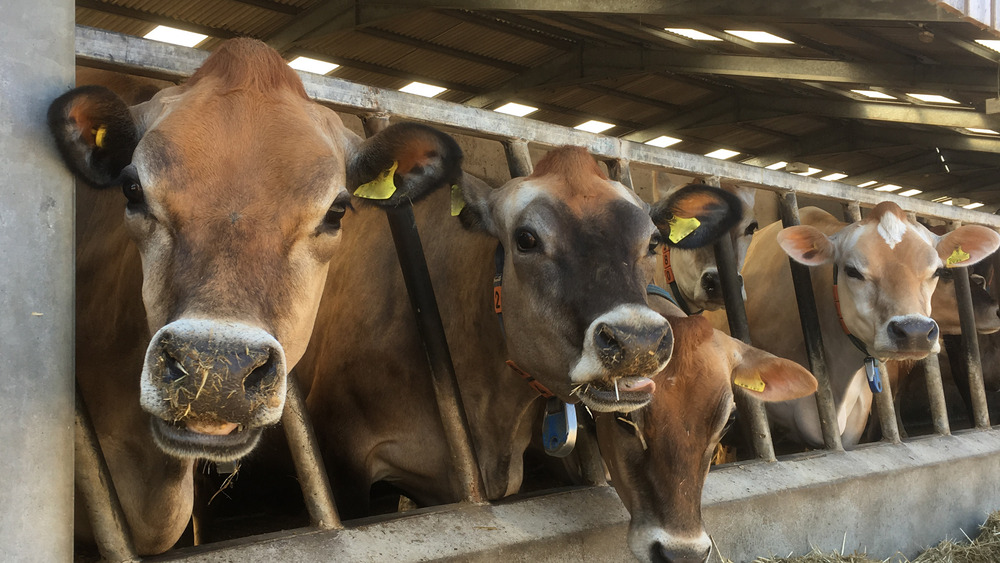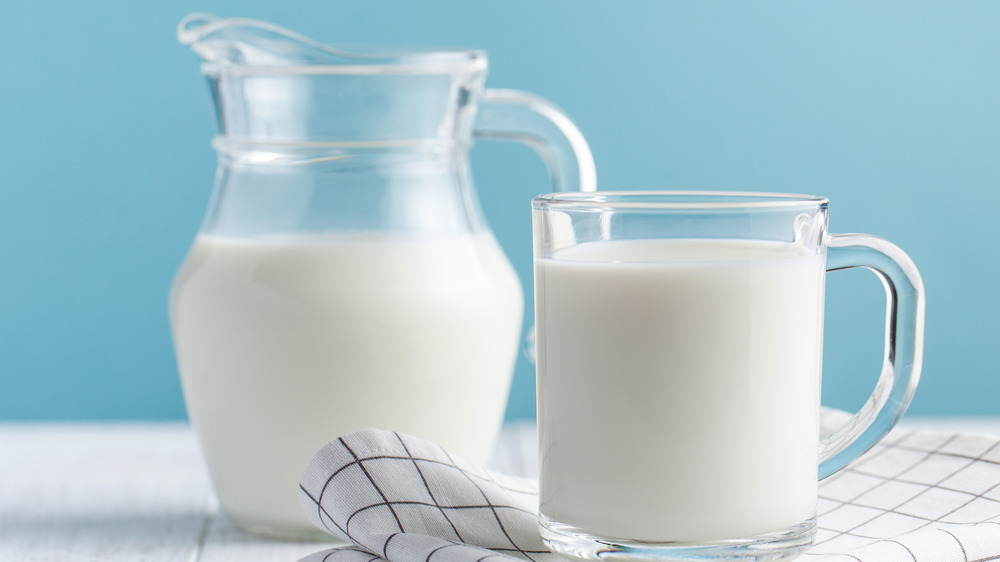Everything You Need To Know About A2 Milk
Milk is milk — or many of us always thought — and the difference between the types of milk lay in the way they were be prepared for our consumption. Think fresh versus powdered, evaporated, or condensed, whole, half-and-half, low-fat, and skim. But food scientists aren't talking about the way milk is prepared, they are talking about a molecular change to milk, that makes it easier to digest. Research shows that there are actually two types of milk and they are determined by the kind of protein that's in it (via Healthline). While casein is what makes up the protein in milk, there are actually two variants of beta-casein, A1 and A2, and early research shows the two react to our bodies in different ways.
A1 milk is produced by cows originally bred in northern Europe and A2 milk is produced by cows that come from the Channel Islands and southern France. Nutritionist Monica Reinagel tells Today, A2 milk was more common "before dairy cattle were domesticated," but a genetic mutation made A1 more predominant. "Most of the dairy cattle here in the United States produce milk that contains both A1 and A2 types of that beta casein protein," she says.
A2 milk may be better for people who are lactose intolerant
Medical News Today says the A2 gene makes this type of cow's milk more similar to goat, sheep, and buffalo milk, and it's not as rare as it might look. Reinagel points out, "There are still cattle in Asia and elsewhere in the world that produce more (of) the A2 kind, and now we're starting to select and breed for that characteristic in cows so we can produce milk that contains only the A2 variation" (via Today). Because A2 milk is slightly more difficult to find, it is also more costly, although that might change because Whole Foods has started selling the country's first organic A2 milk label, Alexandre Family Farms.
Reinagel says there are no proven added health benefits by drinking A2 milk, but if drinking regular milk gives you grief, A2 milk may be worth paying extra for. "There are some studies showing that for people that have this lactose intolerance, drinking milk that only contains that A2 form of the protein can reduce some of those symptoms, which is odd, because A2 milk contains the same amount of lactose as regular milk," she says. Reinagel admits that science isn't close to explaining why this might be the case but "in the meantime, I think this is one of those things that individuals are going to need to try for themselves to see whether it does or doesn't make a difference for them."

